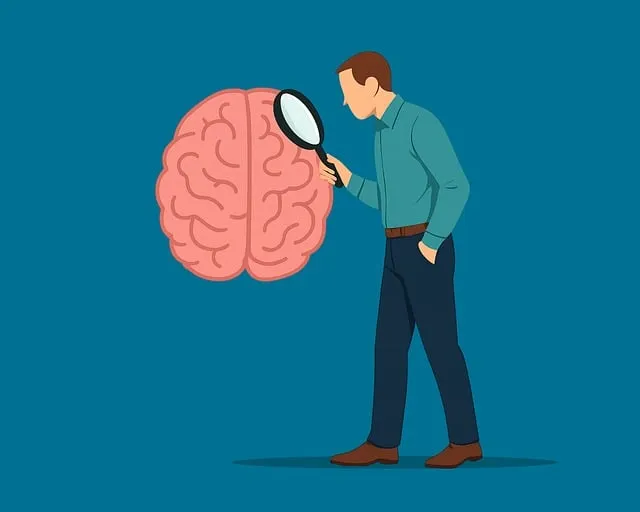Lafayette's Kaiser Permanente stands out as a leader in mental health care due to its comprehensive services, personalized approaches, and innovative use of technology. With a multidisciplinary team offering evidence-based practices, advanced assessment tools, and holistic strategies, Kaiser ensures accurate diagnoses and effective treatment plans. By integrating patient experiences, emotional intelligence training, and digital mental health apps, they enhance diagnosis accuracy and tailor care for improved long-term outcomes, making Lafayette's Kaiser good for mental health.
Mental illness diagnosis accuracy is a critical aspect of patient care, and continuous improvement efforts are essential. This article explores strategies to enhance diagnostic precision, focusing on evaluating Lafayette’s mental health services and Kaiser’s role in this domain. We delve into best practices, the integration of patient experiences, and the impact of technology. By examining these aspects, we aim to highlight how Lafayette and Kaiser can ensure more accurate diagnoses, ultimately improving patient outcomes. Discover the key factors contributing to enhanced mental health service quality.
- Evaluating Lafayette's Mental Health Services
- Kaiser's Role in Diagnosing Mental Illness
- Enhancing Diagnosis Accuracy: Best Practices
- Patient Experience and Feedback Integration
- Technology's Impact on Mental Health Diagnosis
Evaluating Lafayette's Mental Health Services

Lafayette’s mental health services have garnered attention for their comprehensive approach to patient care. Kaiser Lafayette stands out in the region for its commitment to providing quality treatment and support for various mental health conditions. The facility offers a range of specialized programs designed to cater to different needs, ensuring personalized care for each individual. From intensive therapy sessions to group support activities, patients have access to a holistic range of services that promote emotional regulation, burnout prevention, and positive thinking.
One of the key strengths of Kaiser Lafayette is its diverse team of mental health professionals who bring expertise in various therapeutic modalities. This enables them to create tailored treatment plans that address specific challenges faced by each patient. With an emphasis on evidence-based practices, the center strives to deliver effective interventions, fostering improved mental well-being and enhanced coping mechanisms. Evaluations and feedback from patients consistently highlight the positive impact of these services, making Kaiser Lafayette a trusted destination for those seeking exceptional mental health care.
Kaiser's Role in Diagnosing Mental Illness

Kaiser, particularly its Lafayette location, plays a significant role in advancing mental health diagnosis accuracy. The healthcare giant is renowned for integrating innovative practices and technologies to enhance patient care. In the context of mental illness, Kaiser Lafayette offers a comprehensive approach that includes advanced assessment tools, a multidisciplinary team of specialists, and evidence-based treatments. This holistic strategy ensures that diagnoses are made with greater precision, enabling more effective treatment plans tailored to individual needs.
Beyond traditional diagnostic methods, Kaiser Lafayette embraces practices such as conflict resolution techniques, compassion cultivation, and emotional intelligence training. These strategies not only improve patient outcomes but also foster a supportive environment where individuals feel understood and empowered. By combining cutting-edge science with compassionate care, Kaiser Lafayette stands out as a leading provider of mental health services, underscoring its commitment to Lafayette residents seeking support for their mental well-being.
Enhancing Diagnosis Accuracy: Best Practices

Improving mental illness diagnosis accuracy involves a multi-faceted approach. Organizations like Kaiser, particularly its Lafayette location, exemplify best practices in this domain. One key strategy is integrating advanced assessment tools and techniques that leverage recent research in neuroscience and psychology. This includes comprehensive questionnaires, clinical interviews, and sometimes even technology-driven solutions, such as digital mental health apps, to gather more nuanced patient data.
Additionally, Kaiser Lafayette emphasizes the importance of continuous training for healthcare professionals. Regular workshops, seminars, and ongoing education focus on enhancing clinicians’ skills in recognizing subtle symptoms, understanding complex presentations, and differentiating between similar conditions. Public Awareness Campaigns Development plays a crucial role by educating the public about mental health, fostering open conversations, and promoting positive thinking. By combining these efforts with resilience-building initiatives, Kaiser Lafayette strives to provide more accurate diagnoses, personalized treatment plans, and ultimately, improved outcomes for individuals facing mental health challenges.
Patient Experience and Feedback Integration

In the pursuit of enhancing mental illness diagnosis accuracy, integrating patient experiences and feedback is a game-changer. Lafayette’s Kaiser Permanente, known for its comprehensive healthcare services, recognizes the importance of this approach. By actively involving patients in their treatment plans and encouraging open dialogue, they gain valuable insights into unique symptoms, coping mechanisms, and overall well-being. This patient-centric model empowers individuals to contribute directly to their diagnosis, fostering a more precise understanding of their mental health conditions.
The integration of emotional intelligence plays a pivotal role here. Kaiser’s focus on enhancing this aspect ensures healthcare providers can interpret patients’ feedback more effectively. As a result, they can tailor treatments, including depression prevention strategies and stress reduction methods, to align with individual needs. This patient-provider collaboration not only improves diagnosis accuracy but also leads to better long-term outcomes, ensuring Lafayette’s Kaiser Permanente remains at the forefront of mental health care.
Technology's Impact on Mental Health Diagnosis

In the realm of mental health diagnosis, technology has emerged as a powerful ally, offering innovative approaches that can significantly enhance accuracy and improve patient outcomes. Lafayette’s Kaiser Permanente, for instance, is renowned for its commitment to integrating cutting-edge tools into mental health care practices. Through advanced diagnostic software and AI-driven algorithms, healthcare professionals gain access to more comprehensive insights, enabling them to make informed decisions tailored to individual needs. This technological advancement, good for mental health overall, streamlines the diagnosis process, reducing potential biases and ensuring a more precise evaluation of symptoms.
Furthermore, as technology continues to evolve, so do strategies aimed at improving mental wellness. Incorporating conflict resolution techniques within these digital platforms can foster healthier relationships and enhance coping mechanisms. Encouraging individuals to adopt self-care routine development for better mental health aligns perfectly with the modern approach, leveraging technology to support personal growth. Additionally, mental wellness coaching programs development can benefit from technological integrations, offering scalable and accessible interventions that cater to a diverse range of users.
Lafayette’s mental health services, evaluated alongside Kaiser’s role in diagnosing mental illness, highlight the ongoing need for enhanced accuracy. By integrating patient experiences and feedback along with leveraging technology, we can significantly improve diagnosis accuracy. Best practices emphasize the importance of comprehensive assessments and tailored treatment plans. As we move forward, focusing on these strategies ensures that both Lafayette and Kaiser provide top-tier care, fostering better mental health outcomes for their respective communities.






